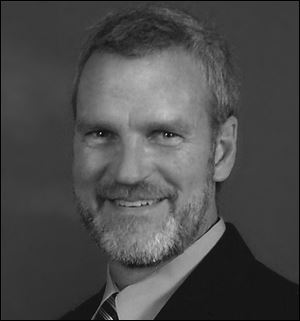
Ohio leads the nation in fighting opioid abuse
Ohio’s elected officials recognize the problem, and are taking strong and sustained action
7/6/2014
Teater
Few other states’ elected officials are doing as much as Ohio’s to stem abuse of, and overdoses from, opioid prescription painkillers.
During this session of the General Assembly, lawmakers proposed 13 bills to combat a public health crisis that kills three Ohioans each day. Four important bills passed.
As a doctor who specializes in addiction treatment, I know the important role lawmakers play in curbing the prescription painkiller problem. As an Ohio native, I know that Ohioans work very hard so their state can provide a blueprint for enacting lasting change.
The 2011 “pill mill” bill was the state’s first big step toward creating a national template. The law closed 13 illegal clinics and dramatically reduced the number of prescriptions for painkillers written in some of the state’s most troubled counties. It’s to be hoped the law’s success will beget further success.
A bill that became law in April requires hospitals to report to the Ohio Department of Health whenever a child is born with an opioid dependency. The need for this law became clear after a report last year from the Department of Health and the state Department of Mental Health and Addiction Services on neonatal abstinence syndrome.
The syndrome occurs in newborns who were exposed to addictive prescription drugs in the womb. The study categorizes the syndrome as an epidemic in Ohio.
According to the state Department of Alcohol and Drug Addiction Services, the number of pregnant or parenting women in Lucas County addicted to opiates increased by 495 percent from 2004 to 2011. Testing our babies for opiate dependency is not just prudent — it is imperative.
The new law also will help us measure our progress in ending addiction. We can identify women who have visited multiple doctors to obtain multiple prescriptions, and have fallen through the cracks of the Ohio Automated Rx Reporting System. By identifying women who are addicted and shopping for doctors, we can get them into treatment, which saves lives and reduces crime.
Ohio lawmakers deserve additional praise for passing a separate bill that prevents doctors from prescribing opioids to minors without the consent of a parent or guardian. One in eight teens admits to using prescription drugs nonmedically. Opioid painkillers are gateway drugs to heroin, and heroin use also is rising among teens.
We wouldn’t dream of giving our children heroin — not only because it’s illegal, but also because we understand how it blights lives. This law further underscores the urgency with which we must address opioid painkiller abuse.
Legislators were wise to enact another law that strengthens Ohio’s reporting system. Last year, 43,000 Ohio medical professionals wrote prescriptions, but only 20,500 were registered to use the reporting system. Most were writing prescriptions for dangerous medications without first checking to see whether the patient was getting them from another doctor.
The new law will make sure that medical providers check this database before they prescribe controlled substances. Monitoring systems such as Ohio’s help reduce doctor shopping, and ensure that patients receive only the amount and type of pills they need. These systems also help identify those who are addicted, so that they may be referred for treatment.
The final piece of the package of legislation designates the first Friday of each May as Prescription Drug Abuse Awareness and Education Day in Ohio. May is Substance Abuse Awareness and Education Month, so it is the perfect time to inform and educate Ohioans about the risks of misusing prescription painkillers.
Through education, strong legislation, and enforcement, we can and will save lives. The war on drugs has infiltrated our medicine cabinets, brought violence to idyllic neighborhoods, and left many people struggling with a crippling addiction they never intended to have.
Kudos to Ohio’s elected officials for recognizing the problem, and for taking strong and sustained action to effect change.
Dr. Don Teater, a Columbus native and a graduate of the Ohio State University school of medicine, is medical adviser to the National Safety Council and runs a substance abuse clinic in North Carolina.